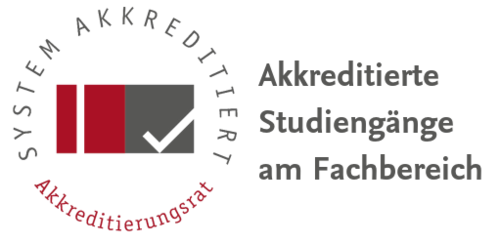Call for Papers - AGYA Conference: Translation and Multilingualism in the Premodern Islamic World(s)
News vom 23.05.2024
15 – 16 November 2024
Institute of Islamic Studies, Freie Universität Berlin, Germany
In the premodern Islamic world(s), translation was instrumental in fostering intellectual, scientific, and cultural advancements. The process of translation contributed to the development of Islamic sciences and intellectual traditions, such as astronomy, medicine, philosophy, and mathematics. Many classical works of philosophy, science, medicine, mathematics, and literature from ancient civilizations were translated into Arabic and subsequently preserved, influencing Islamic scholarship and contributing to the advancement of knowledge production in the region, especially during the Abbasid era (8 to the 10 centuries). It is well known that translation in the premodern Islamic world has facilitated the transfer of knowledge from diverse sources such as Greek, Persian, Indian, and Chinese texts into Arabic, which became a lingua franca of the Islamic scholarly community.
Unlike modern nation-states that exert control over specific territories and languages, the premodern Islamic world(s) featured several cosmopolitan languages in practice. These languages facilitated interactions and the exchange of knowledge within local societies. For example, the translation of Arabic sacred texts played a crucial role, serving as a vital link for effective communication among speakers of different languages and facilitating the exchange of ideas, knowledge, and cultural values across diverse Islamic nations throughout various historical periods. These writers either sought to emulate or drew upon the shared meanings embedded in the collective memory of their respective communities. By revisiting the multilingual texts produced on Qurʾan and Hadith, we can gain insight into how these texts served as a wellspring of inspiration for generations of writers spanning more than twelve hundred years.
The conference explores the role of translation and multilingualism in disseminating scholarly works and educational materials across linguistic boundaries, enriching the intellectual vitality of premodern Islamic societies. The conference invites contributions from the social sciences and the humanities on the process of translation and the nature of multilingualism throughout the premodern Islamic history. Suggested topics include, but are not limited to, the following:
- Studying the translation of sacred texts such as the Quran, Hadith, and theological works into various languages and its impact on religious discourse and interpretation.
- Examining the translation of literary works, poetry, and prose from different languages into Arabic and other languages within the Islamic world, and its influence on literary traditions.
- Examining the role of multilingual manuscripts in preserving and transmitting knowledge across linguistic boundaries in the premodern Islamic world.
- Analyzing the techniques and strategies used by translators in the premodern Islamic world to convey complex ideas and concepts from one language to another.
- Exploring the impact of non-Arabic languages such as Persian, Greek, Sanskrit, and Syriac on the development of Islamic intellectual and cultural traditions through translation.
- Investigating historical approaches to multilingual education and language learning in the premodern Islamic world, including the development of language curricula and pedagogical methods.
Each paper should present a clear case study that effectively highlights its historical and cultural contexts. The conference proceedings, to be published in 2025, will undergo a peer-review process and will be edited by the co-organizers before being published by a prestigious university press.
Those interested in presenting papers are invited to submit an abstract in a Word file (500 words, including references) and a short biography that includes affiliations and publications (150 words) to Hany Rashwan (hrashwan@uaeu.ac.ae) by 15 July 2024 at the latest.
The conference is organized by AGYA members Hany Rashwan (United Arab Emirates University, UAE) and Florian Zemmin (Freie Universität Berlin, Germany). It is planned to take place in person from 15 − 16 November 2024 at the Institute of Islamic Studies, Freie Universität Berlin, Germany. The conference is part of a tandem project within the Arab-German Young Academy of Sciences and Humanities (AGYA). The accommodation and travel costs for invited speakers will be covered by AGYA. Funding is still subject to approval.
Selected References
Gutas, Dimitri. Greek Thought, Arabic Culture: The Graeco-Arabic Translation Movement in Baghdad and Early ʿAbbasaid Society (Second to Fourth / Fifth to Tenth Centuries.). Routledge, 1998.
Marlow, Louise. “Translation of the Words of ʿAli b. Abi Tālib in Early Fourteenth-Century Iran: A Local Bilingual Network.” Iranian Studies, vol. 53, nos. 5–6, 2020, pp. 741–87.
Zadeh, Travis. Mapping Frontiers across Medieval Islam: Geography, Translation, and the ʿAbbāsid Empire. I. B. Tauris, 2011.
Hamilton, Michelle M., and Nuria Silleras-Fernandez, eds. Iberian Babel: Translation and Multilingualism in the Medieval and the Early Modern Mediterranean, (Leiden, The Netherlands: Brill, 11 Jul. 2022) doi: https://doi.org/10.1163/9789004513563
About AGYA
The Arab-German Young Academy of Sciences and Humanities (AGYA) is based at the Berlin Brandenburg Academy of Sciences and Humanities (BBAW) in Germany and at the Academy of Scientific Research & Technology (ASRT) in Egypt. It was established in 2013 as the first bilateral Young Academy worldwide. AGYA promotes research cooperation among outstanding early-career researchers from all disciplines who are affiliated with a research institution in Germany or in any Arab country. The academy supports the innovative projects of its members in various fields of research as well as in science policy and education. With members and alumni in currently 18 Arab countries and Germany, AGYA enjoys strong relations in various research ecosystems, promoting and supporting Arab-German research exchange and North-South-South cooperation. AGYA is funded by the German Federal Ministry of Education and Research (BMBF) and various Arab and German cooperation partners.


